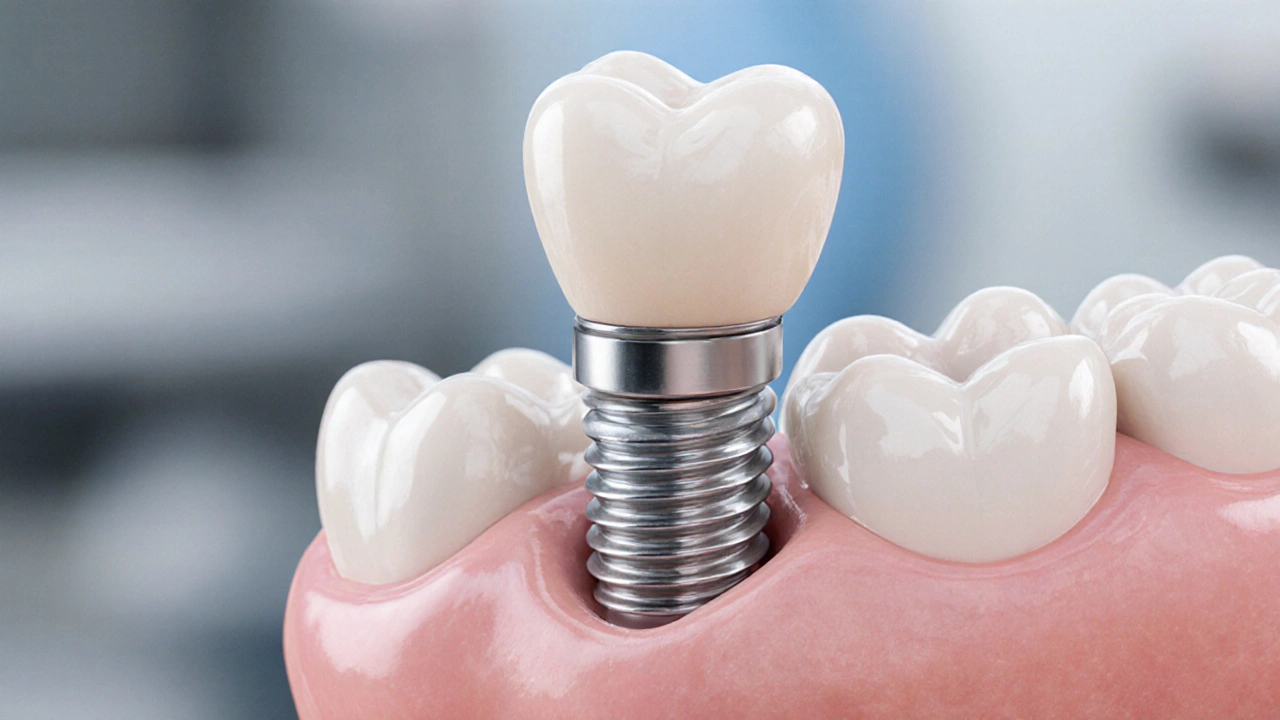Implant Longevity: What Affects How Long Your Implants Last
When you get a dental implant or any medical implant, the big question is – how long will it stay functional? The short answer: many implants can last a lifetime, but only if you understand the factors that wear them down and take simple steps to protect them.
Key Factors That Influence Implant Life
First, material matters. Most dental implants are made of titanium or zirconia, both known for strong bone integration. Medical devices like joint replacements use cobalt‑chrome alloys or ceramic surfaces. These materials resist corrosion, but even the toughest metal can degrade if exposed to certain conditions.
Second, placement technique is crucial. A well‑planned surgery that avoids excessive bone loss gives the implant a solid foundation. Poor positioning can create uneven stress, leading to early loosening or fracture.
Third, your health habits play a big role. Smokers, heavy drinkers, or people with uncontrolled diabetes see higher failure rates. The same goes for gum disease – inflammation around the implant can erode the supporting bone.
Practical Tips to Extend Your Implant’s Life
1. Maintain flawless oral hygiene. Brush twice a day, floss daily, and use an antiseptic rinse. Even a tiny pocket of plaque can turn into a slow‑burn infection that weakens the implant’s bond.
2. Schedule regular check‑ups. A dentist can spot early bone loss or screw loosening before they become serious problems. Same for joint implants – yearly orthopaedic visits can catch wear signs early.
3. Eat a balanced diet. Calcium, vitamin D, and protein support bone health. Chewing tough, sticky foods on a fresh implant isn’t a problem, but overly hard items (like ice) can cause micro‑fractures.
4. Avoid smoking and excess alcohol. Both reduce blood flow, slowing the healing that keeps implants stable. Quitting can add years to your implant’s lifespan.
5. Follow post‑surgery guidelines. If you’ve just had a dental implant, stick to a soft‑food diet for the first week and avoid strenuous exercise that could shift the implant.
6. Know the signs of trouble. Persistent pain, swelling, or a clicking sensation in a joint implant means you should see a professional ASAP. Early intervention can save the implant.
Finally, consider the type of restoration you choose. A well‑designed crown or prosthetic that distributes bite forces evenly will protect the underlying implant far better than a poorly fitted piece.
In short, implants are designed to last decades, but they’re not indestructible. By keeping up with hygiene, health, and regular professional care, you give your implant the best chance to stay functional for a lifetime.
How Long Do Dental Implants Last? Lifespan, Care & Costs Explained
Discover how long dental implants truly last, the factors that affect their lifespan, and practical tips to keep them healthy for decades.
What Happens If Dental Implants Are Left In Too Long?
Dental implants can be a long-lasting solution for missing teeth, but it's crucial to understand the implications of leaving them unchecked for too long. This article explores potential risks associated with prolonged implant use, signs and symptoms of complications, and tips on proper maintenance and regular check-ups to ensure oral health is not compromised.


